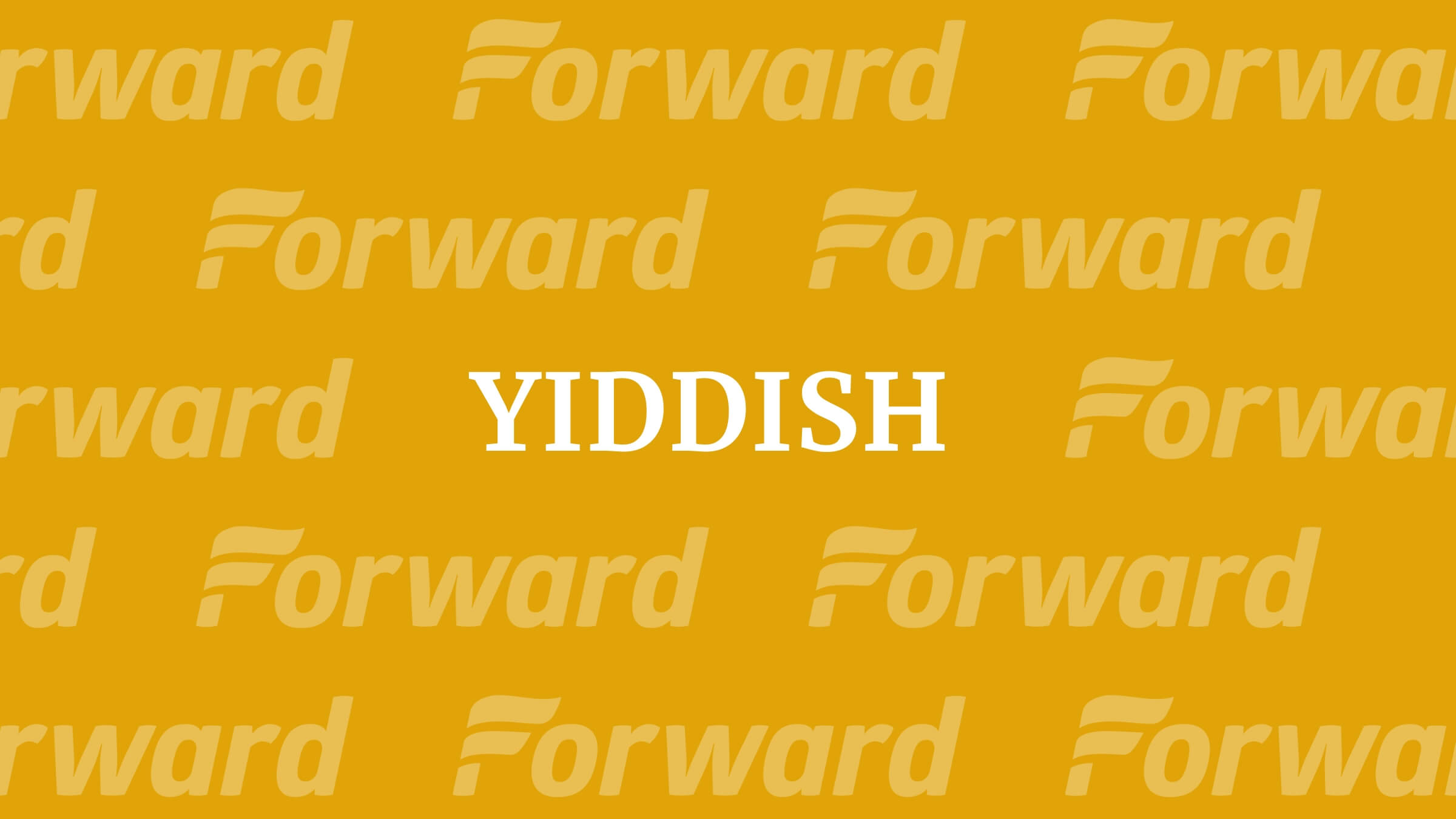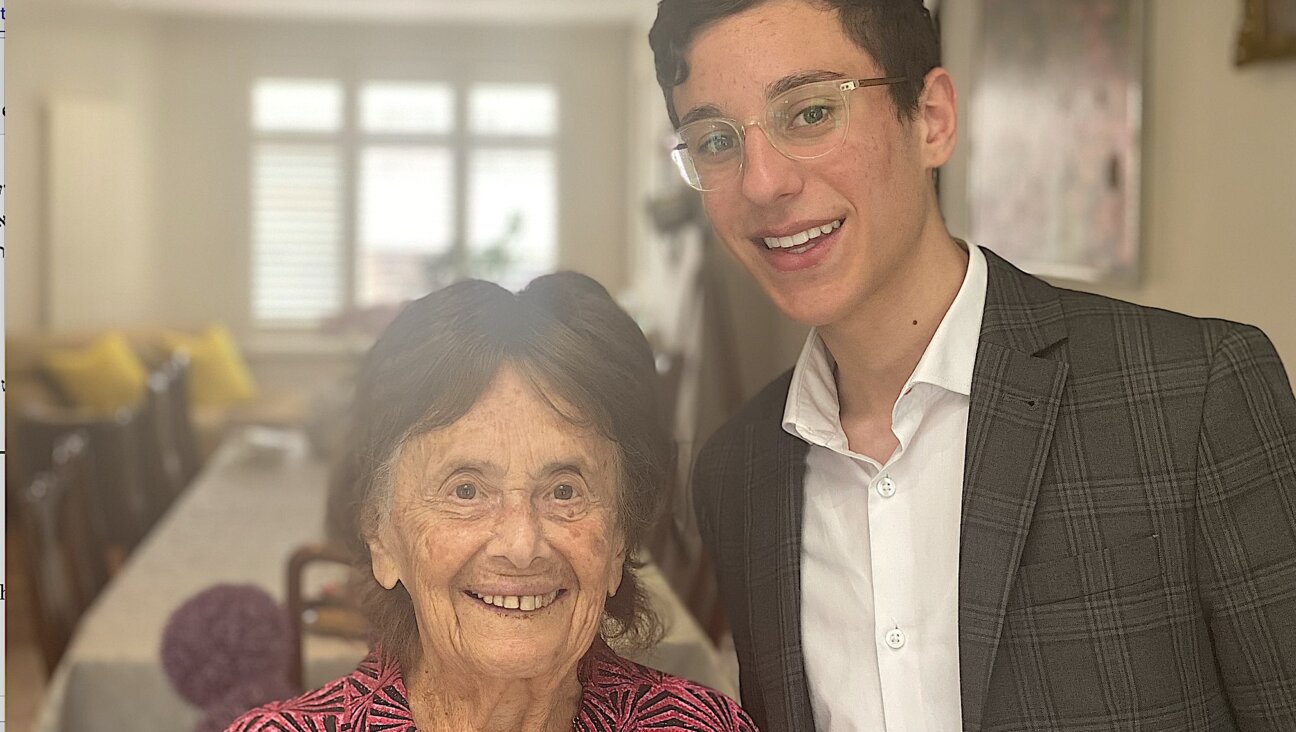רעדעס אויף ייִדיש וועגן „ניט־אָרטאָדאָקסיש“ און דעם פֿאַרלאָזן די חסידישע וועלט Talks in Yiddish about “Unorthodox” and leaving the Hasidic world
אלי ראָזען וועט דיסקוטירן די פּאָפּולערע „נעטפֿליקס“־סעריע און שפֿרה קריינדל־לאָווען — אירע איבערלעבונגען בײַם פֿאַרלאָזן די טאָשער חסידים.

Graphic by Angelie Zaslavsky
די וואָך וועט מען קענען הערן צוויי „זום“־לעקציעס אויף ייִדיש געווידמעט דער טעמע, דאָס פֿאַרלאָזן די חסידישע וועלט. ביידע לעקציעס זענען טייל פֿון דער פּראָגראַם „ייִדיש־וואָך אַלע וואָך“, אָרגאַניזירט דורך יוגנטרוף.
דאָנערשטיק, דעם 13טן אויגוסט, 12 אַ זייגער ניו־יאָרקער צײַט, וועט שפֿרה קריינדל־לאָווען האַלטן אַ לעקציע, „גיב ניט אויף דײַן חלום“, אין וועלכן זי וועט דערציילן ווי אַזוי זי, צוזאַמען מיט איר מאַן און פֿיר קינדער, האָבן פֿאַרלאָזט די טאָשער חסידישע קהילה אין קוויבעק. אין איר רעדע וועט זי באַשרײַבן ווי אַזוי זי האָט געשאַפֿן אַן אַנדער מין לעבן אויף דאָס נײַ און וועט געבן עצות פֿאַר די, וואָס ווילן אויך מאַכן אַ גרויסע ענדערונג אין זייער לעבן.
דער פֿענאָמען פֿון מענטשן וואָס פֿאַרלאָזן די חסידישע וועלט איז הײַיאָר געוואָרן גוט באַקאַנט דעם ברייטן עולם אַ דאַנק דער „נעטפֿליקס“־סעריע „ניט־אָרטאָדאָקסיש“, וואָס איז באַזירט אויף דבֿורה פֿעלדמאַנס ביכל זכרונות פֿונעם זעלביקן נאָמען. אַ פּאַנעל וועגן דער סעריע וועט פֿאָרקומען זונטיק, דעם 16טן אויגוסט, 1:30 נאָכמיטאָג. אינעם פּאַנעל וועט רעדן דער אַקטיאָר און איבערזעצער אלי ראָזען, וואָס האָט געאַרבעט ווי דער ייִדיש־קאָנוסלטאַנט פֿאַר דער סעריע און געלערנט די הויפּט־אַקטריסע שירה האַס ייִדיש. ראָזען האָט אויך געשפּילט די ראָלע פֿונעם רבי יאָסעלע אין דער סעריע. צוזאַמען מיט אים וועט זיך אויך באַטייליקן אינעם פּאַנעל דער אַקטיאָר טל חבֿר־כיבאָווסקי, וואָס האָט געשפּילט די ראָלע פֿון אַהרן שאַפּיראָ, אַ קרובֿ פֿון אסתּי, די העלדין פֿון דער סעריע (געשפּילט דורך שירה האַס).
די רעדעס קען מען זען בחינם אָבער מע בעט אַז די וואָס קוקן די פּראָגראַם זאָלן שענקען אַ בײַשטײַער פֿון אַכט דאָלאַר. נאָך אינפֿאָרמאַציע, און כּדי זיך צו פֿאַרשרײַבן, גיט אַ קוועטש דאָ.





















